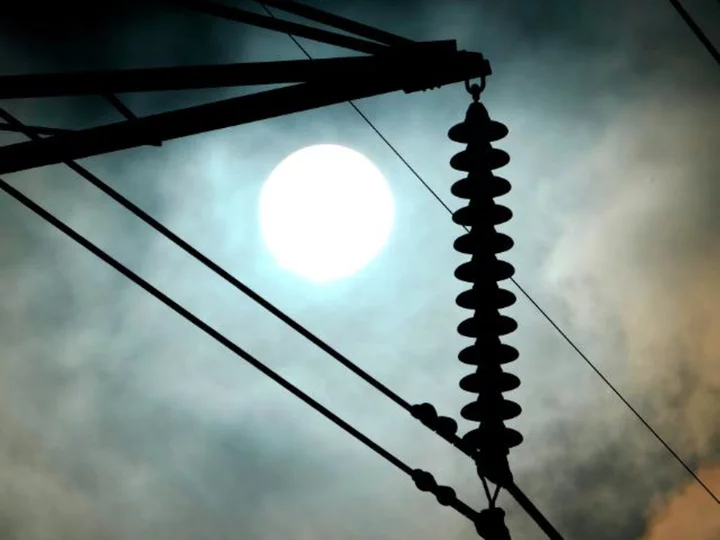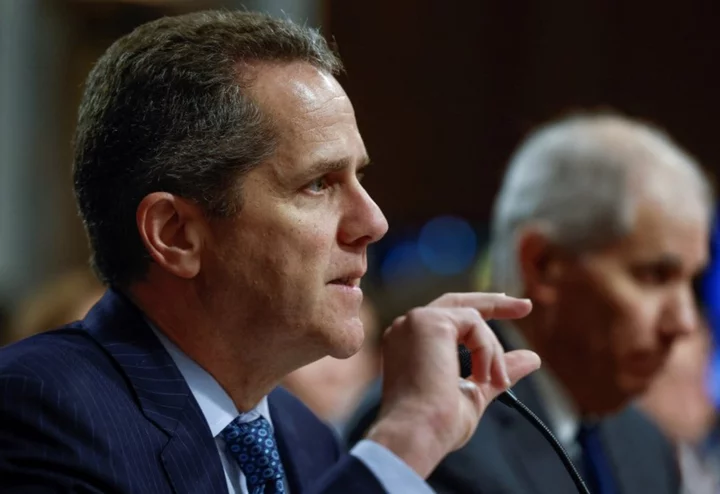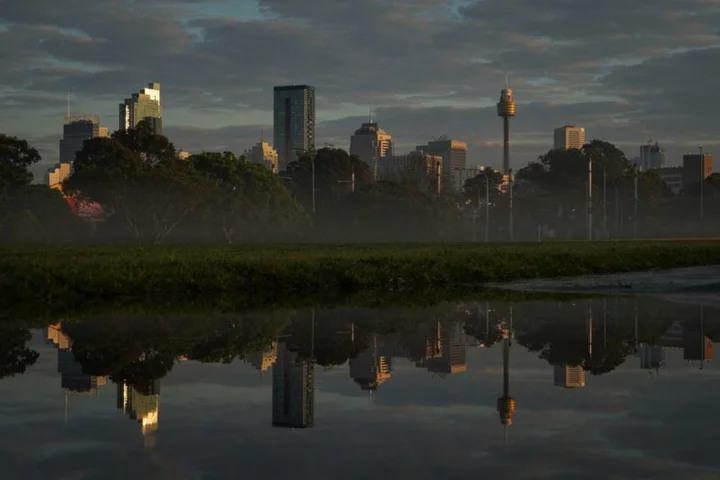With another searing heat wave blanketing parts of the United States this week, many Americans are sweating being able to afford their air conditioning. And often there's not a lot of public assistance available.
Despite the growing concern of heat-related illnesses and climate change, people have far fewer protections from power shutoffs during the summer than they do in the winter. Only 19 states and Washington, DC, bar certain utility companies from disconnecting customers for nonpayment during heat waves, though most states have moratoriums on shutoffs during cold winters. Later this month, Washington will become the 20th state to forbid disconnections for failure to pay during extreme heat.
However, even in states with summertime bans, the rules are outdated and inadequate, consumer advocates say. Some regulations only kick in during very high temperatures — such as 105 degrees in Delaware and Nevada and 95 degrees in Colorado, Missouri and New Jersey — although people can overheat even when the thermometer doesn't climb that high.
In other states, the protections are triggered by National Weather Service heat advisories or warnings, according to a tally by the Center for Energy Poverty and Climate, which was created by the National Energy Assistance Directors Association to develop policies to help low-income families adapt to rising temperatures.
The National Weather Service typically issues heat advisories when the maximum heat index temperature — which takes into account air temperature and humidity — is expected to be 100 degrees or higher for at least two days and nighttime air temperatures will not drop below 75 degrees. Excessive heat warnings are typically issued when the maximum heat index temperature is expected to be 105 degrees or higher for at least two days and nighttime air temperatures will not drop below 75 degrees. The criteria can vary depending on location.
The states' rules only apply to utilities that they regulate, which are typically the larger, investor-owned companies. More than 20% of customers get their electricity from public utilities and cooperatives, which often aren't covered, according to David Konisky, co-director of the Energy Justice Lab at Indiana University.
"Access to cooling is absolutely essential, not just for comfort, but also for wellbeing and long-term health," he said, noting that this is even more important now that heat spells are lasting longer and nighttime temperatures stay elevated more often.
More than 700 people in the United States die from heat-related causes every year, on average, according to the Centers for Disease Control and Prevention. The deaths are generally considered preventable.
At least 3 million customers had their power turned off in 2022 because of missed bill payments, Konisky said. More than 30% took place over the summer, though last year was among the hottest on record.
Even if their state bans shutoffs, residents may be afraid to use their air conditioning if they've fallen behind in payments, said Mark Wolfe, executive director of the National Energy Assistance Directors Association.
"Many won't turn it on because of the bill," he said.
Nearly 20 million households — or about 1 in 6 nationwide — were behind on their electric bills by a total of $19.5 billion at the end of March, according to the association.
Less federal aid for cooling
Another issue is that most federal help for energy bills is used to reduce arrears related to heating, not cooling.
The Low Income Home Energy Assistance Program, known as LIHEAP, has about $6 billion in funds for fiscal 2023, which runs through September. That's down from the beefed-up allocation of $8 billion that Congress provided for the year before. Lawmakers are expected to provide the typical $4 billion appropriation for the coming fiscal year.
About 20% of the funds is going towards cooling this fiscal year, according to the association.
But states, which administer LIHEAP, have widely varying policies. Sixteen states set aside at least 15% of their funds for cooling, while another 10 states do not provide any money during the summer, for instance, according to the Center for Energy Poverty and Climate.
Americans' financial stress will likely climb this summer since the season's electricity bills are expected to be similar to or higher than last year's elevated level.
The cost is forecast to be a total of $529, on average, up from $517 last year and $445 two years ago, according to the US Energy Information Administration.
But Wolfe expects the cost to jump nearly 12%, to $578, based on warmer temperature forecasts. And in the region including Texas and Louisiana — where some cities are having their hottest summer on record — the tab is projected to rise to $706, up 10% from last year.
The association is calling on Congress to provide an additional $3 billion for cooling assistance this summer, which would help about 6 million households. And it is asking utilities to voluntarily suspend shutoffs this summer for those behind on their bills.
Some companies institute their own moratoriums during heat waves, even if it's not required by their states. Florida Power & Light, for instance, has a longstanding policy that it won't disconnect customers if it's 95 degrees or higher. Most of south Florida fell into this category on Friday, said spokeswoman Bianca Soriano.
Customers who have trouble affording their electricity should reach out, Soriano said, noting the utility has several assistance programs.
"If a customer has a hard time, they're in a crisis, they need help, as long as they call us, we're going to work with them," she said.









